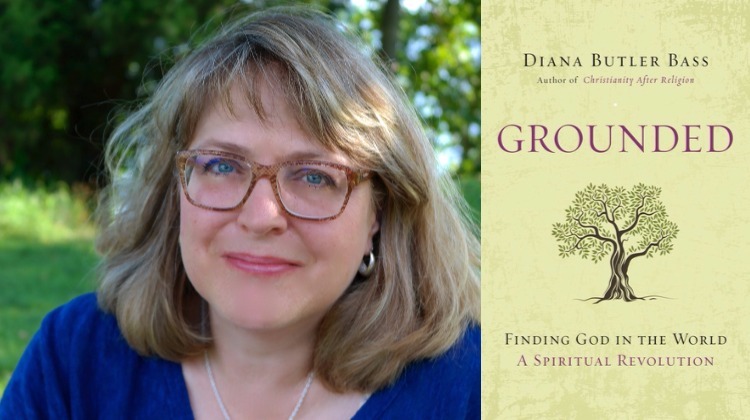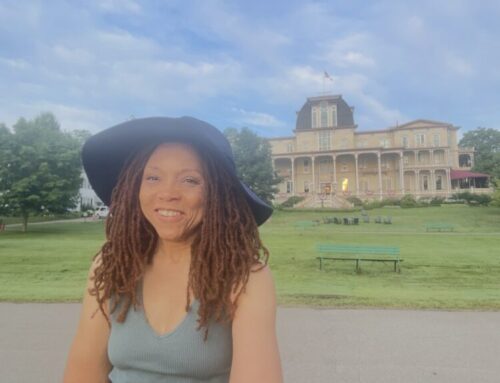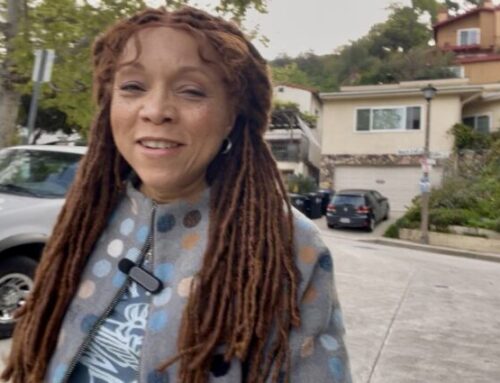Diana Butler Bass delivered two insightful keynote addresses at Princeton Theological Seminary recently for the Frederick Buechner Writer’s Workshop. The first, “The Accidental Writer,” described how the author whose latest book is Grounded: Finding God in the World, A Spiritual Revolution, fell into her writing career by way of the academic world and then journalism. “Cherish your own path,” she said. “There is no one path to becoming a writer.”
There’s also no one way of being a writer, but it seems to be an area where many writers or writers-to-be struggle. That’s why successful authors are forever asked questions about their routines and their writing practice. Diana answered all these questions in her second presentation and I found the title quite enlightening: “The Intentional Writer.” In other words, once you decide you’re a writer, you can be intentional about the way you go about your work—to be serious and professional about it. You are intentional about how you learn, how you write, how you connect with people. She described intentionality as “moving from just falling into stuff to paying attention.” In other words, you’re making conscious choices about your writing life.
She shared with us the eleven things she does regularly and with intention that help her be a writer. They are all excellent—in fact I do all these things too!—so I’m pleased to share these habits/practices with you.
1.) Haunt bookstores. Diana said, “If you’re a writer and you don’t go to bookstores, I don’t know what’s the matter with you!” In bookstores you find out:
–what people are reading
–what books are being featured on the racks and tables
–what titles seem to pop, what the popular cover colors are, if there’s a design trend going on
–what’s the cultural conversation going on around books
Diana also suggests befriending booksellers and, when hanging out in bookstores, paying attention to what people are buying. This is your fieldwork as a writer.
Your fieldwork should also including reading The New York Times Book Review, The New York Review of Books, and Publishers Weekly.
This next add is a big one: attend author events! I know this can be difficult if you don’t live in an area that’s a popular book tour stop, but making the trip is worthwhile. You get to make a face-to-face connection with an author and sometimes (this is especially true of events in New York City) that author’s editor and literary agent.
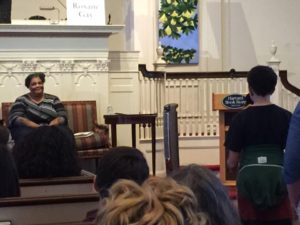 This week I drove over five hours round trip to hear Roxane Gay read and talk about her new book, Hunger: A Memoir of (My) Body. I feel the book is an important work and I wanted to show my support by showing up for one of Roxane’s events. This was the closest one I could attend. I took my 12-year-old son with me and we stood in a line to get in but it was so worth it to hear him whisper to me that he wanted to ask Roxane a question and then, when she was signing his book, see his face light up when she told him she writes comic books. I can’t say it enough: attend author events. Go for the author, go for the bookstore, go for yourself and your writing life.
This week I drove over five hours round trip to hear Roxane Gay read and talk about her new book, Hunger: A Memoir of (My) Body. I feel the book is an important work and I wanted to show my support by showing up for one of Roxane’s events. This was the closest one I could attend. I took my 12-year-old son with me and we stood in a line to get in but it was so worth it to hear him whisper to me that he wanted to ask Roxane a question and then, when she was signing his book, see his face light up when she told him she writes comic books. I can’t say it enough: attend author events. Go for the author, go for the bookstore, go for yourself and your writing life.
2.) Read books! Diana notes the importance of being committed to your own reading. Again, I agree. As writers we must know what’s being written, what’s challenging, what’s good. We must read so that, as the poet Jane Kenyon said, “you have good sentences in your ears.” It’s vital to your work. I use Goodreads to curate my reading and I have a regular goal of reading 40 books a year.
3.) Write daily. I know this isn’t possible for everyone, but Diana counts a lot of things as writing. Even posting on Twitter is writing. “If you can post five amazing tweets, you’re writing,” she said. “It’s like writing poetry.” She also journals. “I’m paying attention to my own spiritual life and to what the world needs.” Find your own way of writing every day. “There’s all kinds of ways to put pen to paper or fingers to computer keys,” Diana said. When you can’t write, she said, do something creative. She colors in coloring books. “Sometimes it’s easier to just take the pencil and color in someone else’s lines,” she said.
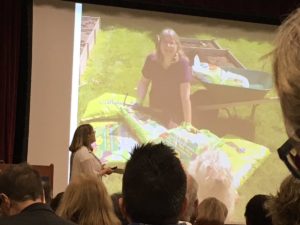
Photo by Barbara Figge Fox
4.) Get out and move. Walk, exercise.
5.) Talk to strangers. Be connected to the world. You’ll never know whom you’ll meet or what you’ll learn.
6.) Instead of asking what a writer is writing, ask them what they’re reading. I loved this suggestion. So many writers don’t like discussing work in progress, especially if it’s very new. But talking about books is so much fun.
7.) Pay attention to your own voice. Diana likes to think about “How can I be Diana in this conversation?” I think this is a helpful question when embarking on a piece about a topic very much in the social conversation such as a tragedy or political event.
8.) Make time for silence, prayer, and meditation. Yes, yes, yes.
9.) Do what you write about. You don’t have to do it perfectly, Diana said, but you do want hands-on experience so you can have authority.
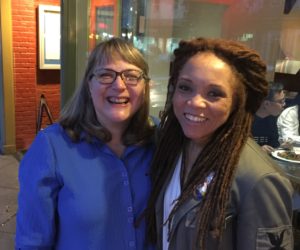
Photo by Mihee Kim-Kort
10.) Make friends with other writers and people who do what you do in the world. Social media is a great way of doing this, and so is attending author events.
11.) Make friends with your audience. Diana said, “The real honor of writing is when someone reads it. It fills me with gratitude, makes me want to respond, to try to care about what my audience cares about.” She knows this isn’t always easy
Diana finished with these thoughts: “Always remember your words will go somewhere and connect to the lives of people you don’t know. Take tender care with this. That’s where the magic happens.”
I loved meeting Diana and I’m looking forward to our growing friendship.
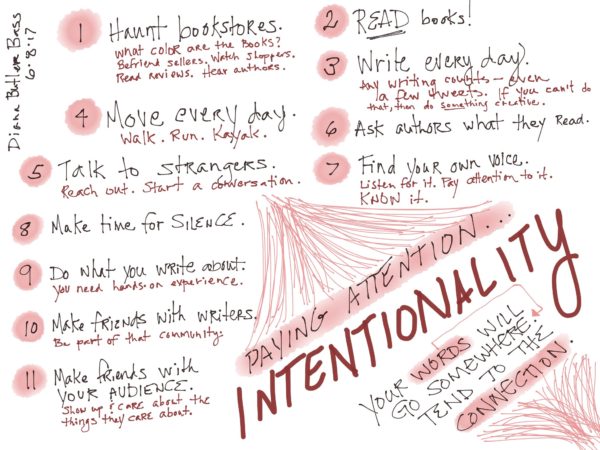
Visual notes by Beth Nyland
